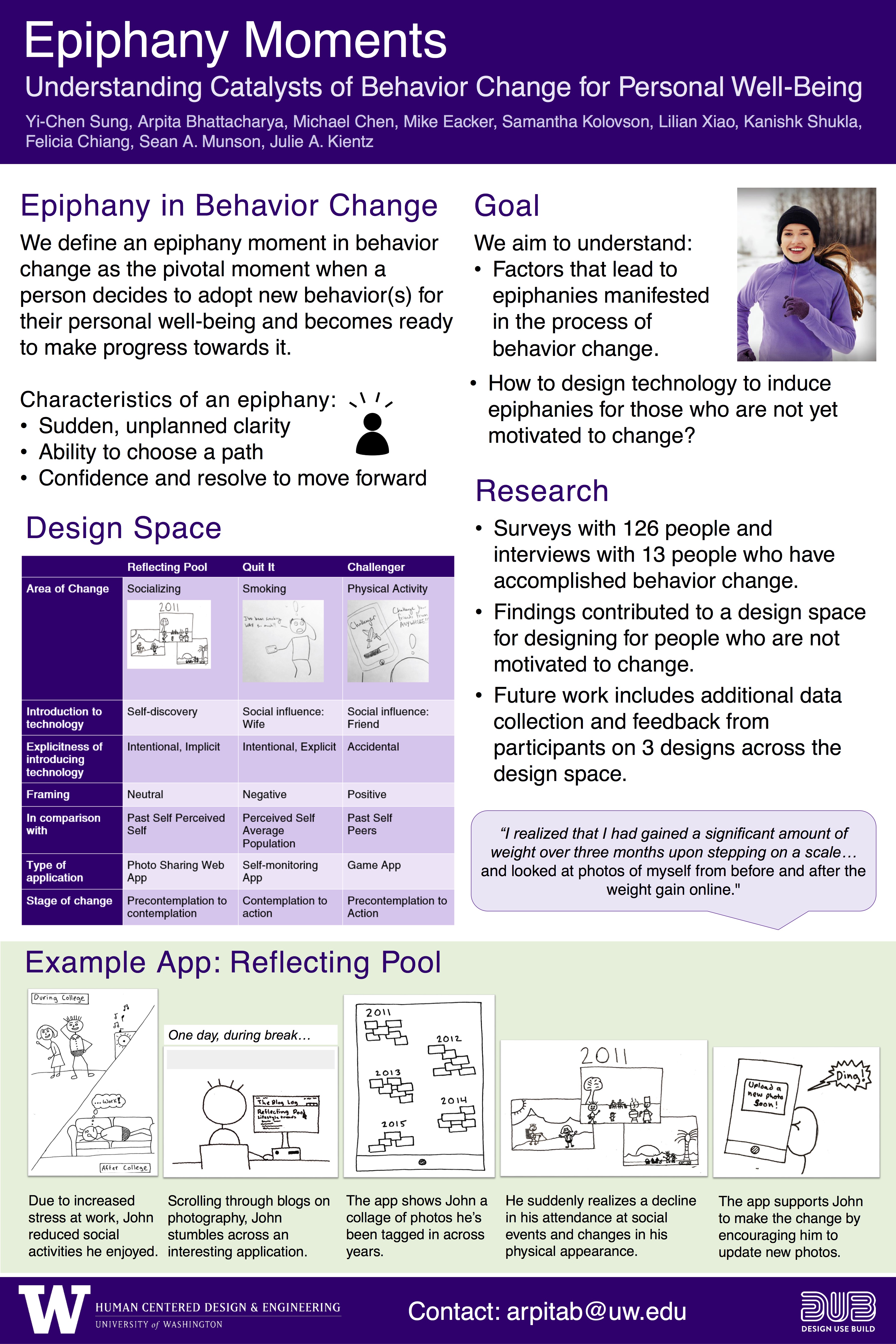Pivotal Moments
2016-2017. I worked on this project in a Directed Research Group led by fellow HCDE PhD student Aprita Bhattacharya. Abstract: Most health technologies are designed to support people who have already decided to work toward better health. Thus, there remains an opportunity to design technologies to help motivate people who have not yet decided to make a change. Understanding the experiences of people who have already started to make a health behavior change and how they made that pivotal decision can be useful in understanding how to design such tools. In this paper, we describe results from surveys with 244 adults who have decided to make a behavior change and interviews with 25 adults who have either already accomplished their behavior change(s) or are currently working toward them. We identified four factors that lead to pivotal experiences: (1) prolonged discontent and desire to change, (2) significant changes that increase fear or hope of future, (3) increased understanding of one’s behavior and personal data, and (4) social accountability. We also describe a design space for designing technology-based interventions for encouraging people to decide to make a change to improve their health. We discuss opportunities for further exploration of the design of for people who are not yet motivated to change and for ethical considerations for this type of intervention.
